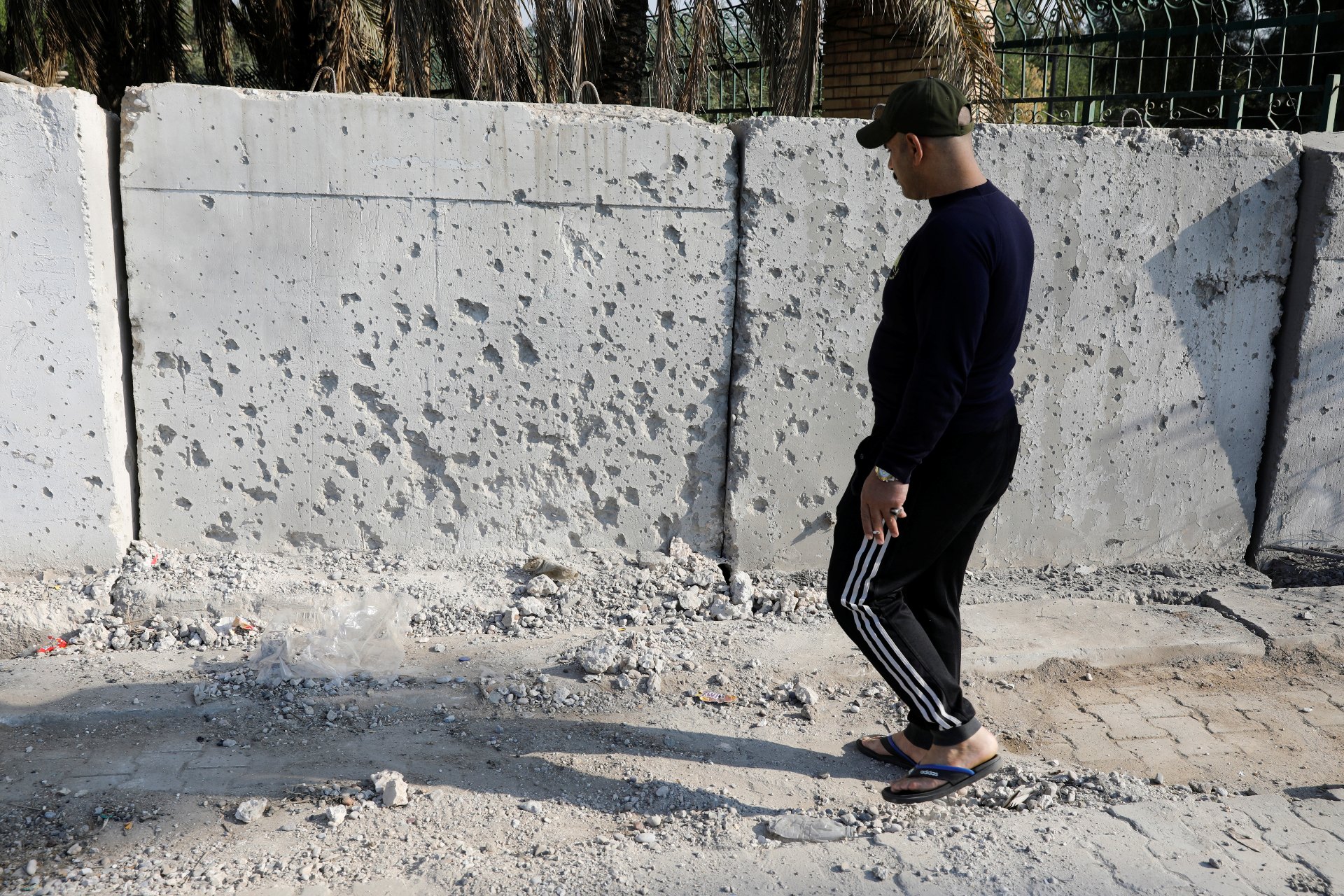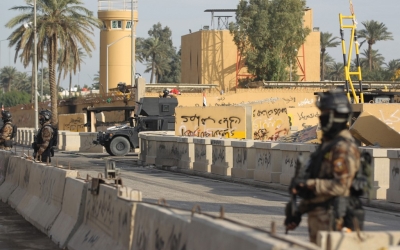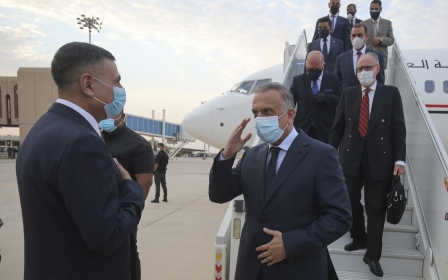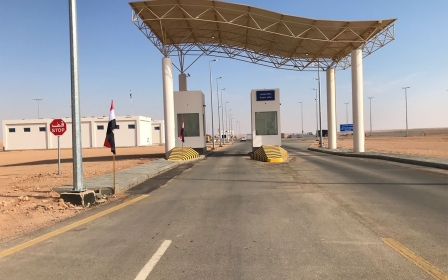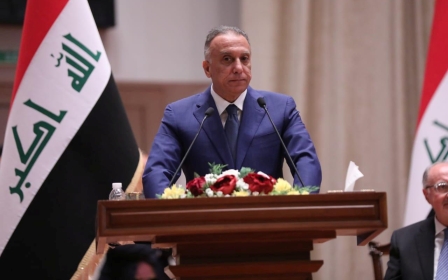EXCLUSIVE: Iran tells Iraq factions ‘no attacks on US targets until Trump is gone’
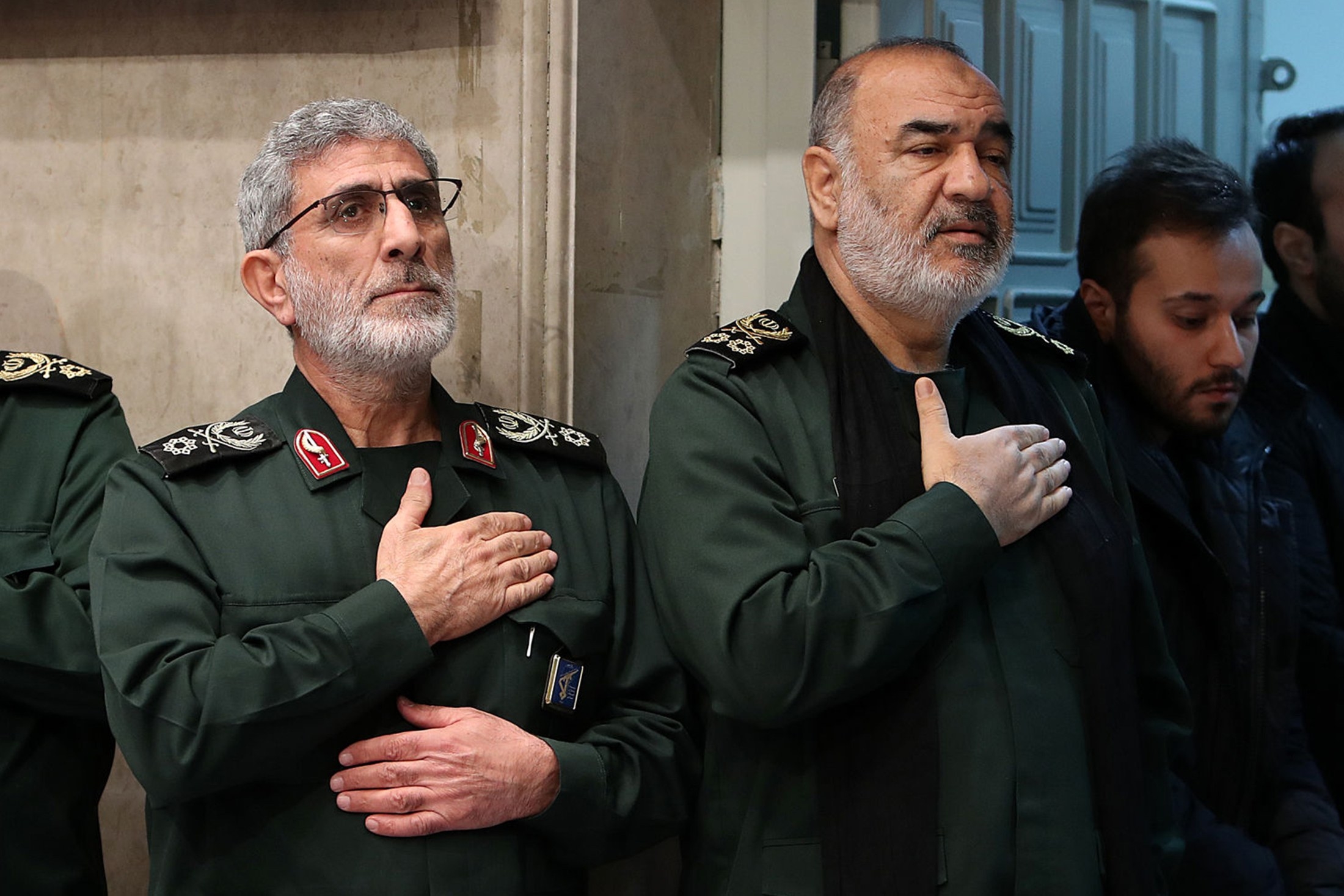
Terrified that Donald Trump could launch a new Middle East war, Iran dispatched one of its top generals to Baghdad last week to order allied Iraqi factions to cease all attacks until Joe Biden is in the White House, paramilitary commanders told Middle East Eye.
Arriving 24 hours after a barrage of rockets targeted the US embassy in Baghdad’s Green Zone, Brigadier General Esmail Qaani was explicit in his instructions to paramilitary leaders on Wednesday.
“Qaani made it clear that Trump wants to drag the region into an open war before leaving, to take revenge on his opponents over losing the election, and it is not in our interest to give him any justification to start such a war,” a senior commander of a Shia armed faction, who was among those briefed about what was said at the meeting, told MEE.
'Qaani made it clear that Trump wants to drag the region into an open war before leaving, to take revenge on his opponents over losing the election, and it is not in our interest to give him any justification to start such a war'
- Senior commander
With the United States doubling its troop presence in the Gulf, and Israeli normalisation deals with the UAE and Bahrain bringing Iran’s archenemy to its doorstep, Tehran is beginning to feel boxed in.
Meanwhile, an always temperamental president has become even more unpredictable, with Iranian leaders believing Trump, smarting from this month’s election loss, could lash out at Iran before his term ends on 20 January.
Iran’s armed proxies in Iraq have for months rained rockets down on US targets in the country. Though not particularly deadly, they have been provocative and destabilising.
Deciding the Iraqi arena needed a moment of calm, Iranian Supreme Leader Ali Khamenei ordered Iran-backed factions to call a unilateral ceasefire, which they subsequently announced on 11 October.
Tensions at the time were sky high, with Trump threatening to shutter the US embassy and launch air strikes against Iran’s interests and proxies in the region.
Though the ceasefire took the sting out of those threats, on Tuesday a fresh volley of at least seven BM-21 rockets hit the Iraqi capital’s Green Zone, where most government buildings and diplomatic missions are located.
The attack killed a child and wounded a further five civilians, and damaged a number of government buildings and private properties, Iraqi security sources said. It also ramped up tensions once again.
The next day, Qaani, commander of elite al-Quds force responsible for extraterritorial military and clandestine operations, arrived in Baghdad to meet the commanders of Iranian-backed Shia armed factions and “personally supervise” their commitment to the truce, three commanders of armed factions told MEE.
“No faction has violated the declared armistice. We previously said that the truce will last for only two months, and the deadline has expired,” a prominent commander of one of the armed factions involved in the attacks told MEE.
“The leaders of some factions have a special point of view regarding how to get the American forces out of Iraq, but they also do not deviate from the consensus of others and take into account the higher interests of Iraq and the region.”
High-level meetings
Qaani, who came directly from Lebanon after meeting Hezbollah leader Hassan Nasrallah, held several meetings during his two-day visit, the most prominent of which was on Wednesday evening at the house of Hadi al-Ameri, head of the parliamentary Fatah bloc and commander of the Badr Organization, the oldest and biggest Shia armed faction.
The meeting was attended by representatives of the most prominent armed Shia factions, including Asaib Ahl al-Haq, Kataeb Hezbollah and Herakat Hezbollah al-Nujaba, in addition to Abu Fadak al-Muhammadawi, chief of staff of the Hashd al-Shaabi paramilitary umbrella group, and several political leaders from the Fatah and the State of Law parliamentary blocs.
Qaani warned that a conflict with US forces could quickly move beyond Iraq.
“If war breaks out between Iran and America, its repercussions cannot be contained, and Iraq, Syria, Lebanon, Yemen, Saudi Arabia, Kuwait and Iran will all be a battleground for both sides,” the senior commander briefed on the meeting quoted Qaani as saying.
“Therefore, the higher interest must be taken into consideration. What is the value of targeting the embassy in exchange for risking the interests of all these countries? So all attacks targeting US interests in the region should be stopped.”
Another meeting, no less important than its predecessor, was held over breakfast on Thursday morning with Prime Minister Mustafa Al-Kadhimi at his Green Zone home.
A prominent Hashd al-Shaabi commander told MEE that this part of Qaani’s visit “was aimed at confirming the Iranian side’s continued support for the Iraqi government”, as well as Tehran’s eagerness for Iraq to hold free and fair elections and continue to probe the US killing of Qassem Soleimani, the Iranian general’s predecessor.
Kadhimi's team has another opinion.
"The Iranians are terrified of what Trump might do in these weeks. They see that the American mobilisation near the Strait of Hormuz is targeting them, and that Trump seeks to create chaos and fabricate a war with Iran before leaving the White House,” a key adviser of Kadhimi told MEE.
“The Iranians are keen to calm the situation with Trump because he is a loser and can be violent, so all that is currently going on is an attempt to avoid what Trump might do.”
In Tehran, expectations are high that a Biden presidency would usher in a new phase of dialogue with Washington and even the resurrection of the 2015 nuclear deal. According to Kadhimi’s advisor, the Iranians are preparing the ground for negotiations.
“Kadhimi may be a bridge between the Iranians and the Americans, if the two sides strengthen him,” said the adviser.
This article is available in French on Middle East Eye French edition.
Middle East Eye propose une couverture et une analyse indépendantes et incomparables du Moyen-Orient, de l’Afrique du Nord et d’autres régions du monde. Pour en savoir plus sur la reprise de ce contenu et les frais qui s’appliquent, veuillez remplir ce formulaire [en anglais]. Pour en savoir plus sur MEE, cliquez ici [en anglais].


